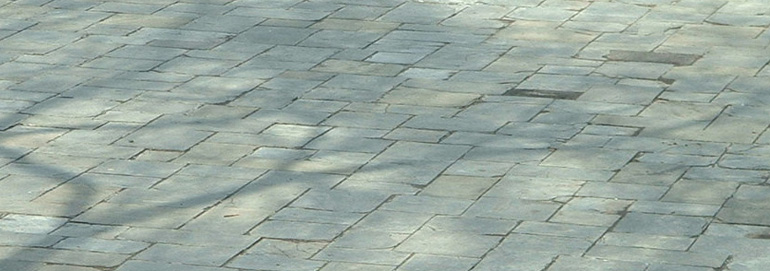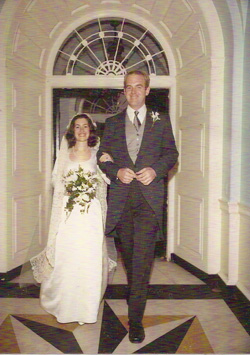Gotham Diary:
The Servant Problem
4 October 2011
Tuesday, October 4th, 2011
Every dinner party teaches me something. This soup would be improved by a different blend of herbs; that roast might spend a little less time in the oven. Most of these lessons are lost, however, because time passes before I make this soup or that roast again. (I have two almost exclusive culinary repertoires, one for dinners for two or three, served in an “everyday” style, and another for dinner parties.) If I’m very pleased with something that I’ve done, or feeling unusually diligent, I may make a few notes the morning after. I write them down on paper, but I might as well write on the wind, because who knows where those notes go. At least I’ve learned not to keep them in a computer file!
Last Saturday night was different. What it had to teach me had nothing to do with the food, and it cried out for immediate implementation. As Eddie Monsoon put it, “Surfaces, darling.” I needed to clear off the kitchen’s surfaces. Of which there aren’t all that many.
The surfaces in my life, in and out of the kitchen alike, tend to fall victim to a powerful combination of laziness and orderliness. Instead of taking the trouble to put things back where they belong after I’ve used them, I arrange them neatly where they are, out in the open. How handy is that! No need to hunt down the farfalle; the canister holding them is right there on the rolling cart. Along with dozens of other items, just waiting for me to need them — when what I really need is somewhere to put a casserole that I’ve just taken out of a hot oven. Somewhere to place a cutting board so that I can chop up something that I forgot about until late in the game. Somewhere to line up plates for serving. The convenience of having things neatly to hand clashes with the imperative of finding urgently-needed work space.
I feel awfully old for this lesson in domestic entropy; I really ought to know better. But part of me still believes that, once you’ve organized a drawer, you’re done. That’s taken care of. Two years later, the drawer is a mess, and you can’t find anything that you’re looking for; sooner or later, you organize it once again and fall for the same pipe dream: that’s taken care of. Nothing in domestic life is ever taken care of, except maybe for ten minutes — and anything that is taken care of, anything that sits quietly and undisturbed for years at a stretch is undoubtedly something that you don’t really need. (Holding on to things for sentimental reasons is an entirely different pathology.) The trick of household management is to keep things in order before they get too far out of it.
The sad fact of the matter is that I would not hire me as a servant. I would not give me good references. I’m only good at being the master.
I did, however, clear off the kitchen surfaces yesterday. It didn’t take as long as I feared, although, technically, the job isn’t done yet; I’ve still got six clean and empty apothecary jars, one tall and five short, that I’ve got to store somewhere. Maybe I should just toss them. Apothecary jars are a problem for me, as are canisters generally; it has taken years to distinguish what I can store in them for reasonable amounts of time from what I can only entomb. Into the former class fall common baking ingredients, such as flour and sugar, and four or five kinds of pasta that I cook all the time. Into the latter fall nuts and dried fruit and crystallized ginger unusual pasta shapes that I don’t know why I bought. Strange crackers. Chocolate chips.
(A “universal truth” along the lines of “the check is in the mail”: “This will come in handy someday.” Let me tell you what will come in handy someday — each and every day: having Fairway across the street.)
In any case, I’m ready for my next, as yet unscheduled, dinner party. My surfaces are clear. Now they are. Can I keep them that way?


